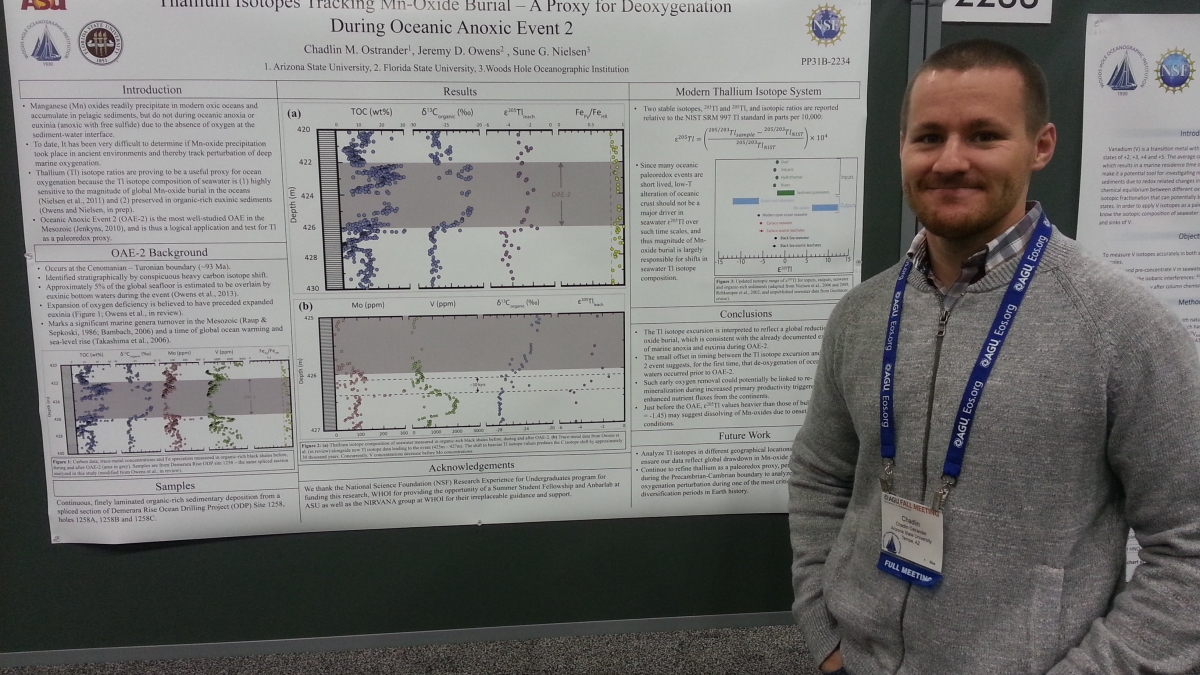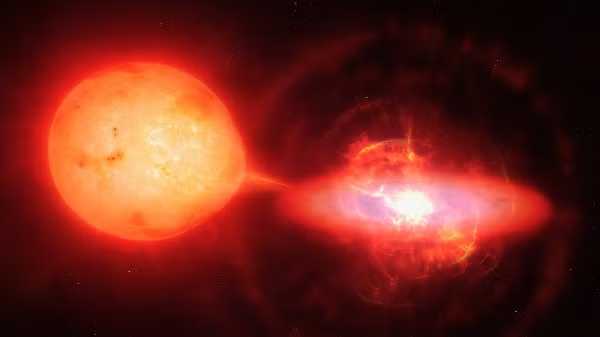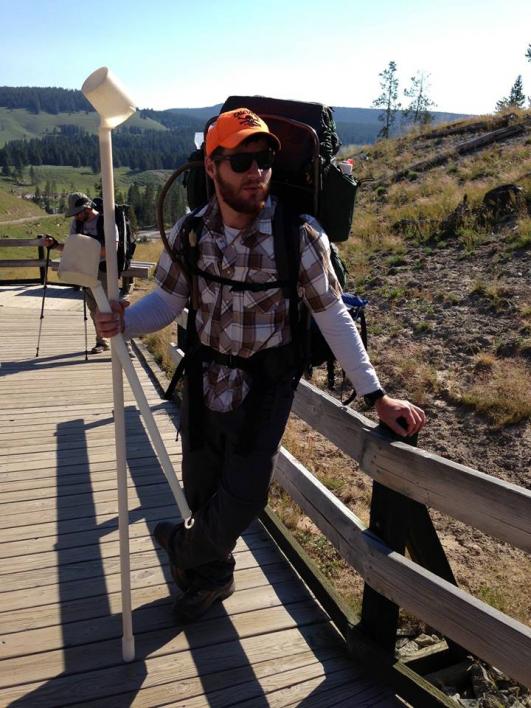Focusing on the future of Earth

Chad Ostrander, at the 2015 American Geophysical Union Fall Meeting.
Editor's note: This is part of a series of profiles for spring 2016 commencement. See the rest here.
Chad Ostrander, who will be graduating this spring with a bachelor’s degree in geological sciences from the School of Earth and Space Exploration (SESE), was recently awarded a National Science Foundation graduate research fellowship.
Ostrander will be staying at Arizona State University to pursue a doctorate in geological sciences and will be working with the Anbar Lab, which focuses on the future of Earth as an inhabited world, and the prospects for life beyond.
Ostrander said the toughest part of his ASU experience was getting back into math and physics after taking six “gap years” before beginning studies at ASU. The most helpful experience, however, was the research opportunity SESE’s Ariel Anbar extended his way during his freshman year.
“I am forever in debt to Ariel Anbar, Gwyn Gordon and Steve Romaniello for everything they have done,” said Ostrander. “Every ounce of science success, both in the lab and the classroom, is the direct result of their guidance.”
Ostrander answered some questions about his experience at ASU:
Question: What was your “aha” moment, when you realized you wanted to study the field you majored in?
Answer: I started reading books by Carl Sagan as part of a New Year's resolution in 2011 and fell in love with science. My high school geology and astronomy teacher, Mr. Ward, would play VHS clips from the 1980s Cosmos series, effectively planting this seed.
Q: What’s something you learned while at ASU — in the classroom or otherwise — that surprised you, that changed your perspective?
A: There are a lot of meaningful research opportunities out there, especially in the School of Earth and Space Exploration. I didn't expect to be involved in research so quickly, especially as a freshman six years removed from high school, but I gladly tried to keep up.
Q: Why did you choose ASU?
A: My wife was offered a promotion by her employer, pending relocation to Phoenix, and I was finishing an enlistment in the Marines. I wanted to give college a shot, regardless of where we ended up.
Q: What’s the best piece of advice you’d give to those still in school?
A: Take risks and learn from your mistakes. Revel in opportunities to correct those mistakes.
Q: What was your favorite spot on campus, whether for studying, meeting friends or just thinking about life?
A: I enjoy walking around campus as a break from the grind of studies and research. There is something relaxing about being alone and on the move.
Q: What are your plans after graduation?
A: To pursue a PhD at ASU under the guidance of Dr. Ariel Anbar. Our group is interested in Earth's oxygen history. Specifically, when did oxygen first begin to accumulate in the atmosphere, even in small amounts? There is a great collection of nearly 3 billion-year-old sedimentary rocks at ASU suitable for addressing this question.
Q: If someone gave you $40 million to solve one problem on our planet, what would you tackle?
A: Random people send me similar email offers all the time: "All we need is your bank information, Mr. Ostrander," they say. I haven't decided what to do with the money once it comes, though. I feel a lot of the world's headaches could be solved with an educated public, so I'll likely try and tackle that.
More Science and technology

Stuck at the airport and we love it #not
Airports don’t bring out the best in people.Ten years ago, Ashwin Rajadesingan was traveling and had that thought. Today, he is…

ASU in position to accelerate collaboration between space, semiconductor industries
More than 200 academic, business and government leaders in the space industry converged in Tempe March 19–20 for the third annual…

A spectacular celestial event: Nova explosion in Northern Crown constellation expected within 18 months
Within the next year to 18 months, stargazers around the world will witness a dazzling celestial event as a “new” star appears in…


